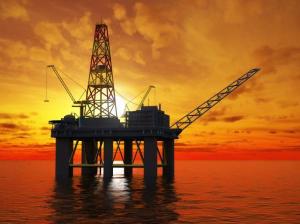I am talking of course about the price of black gold – oil – that is affecting all nations, at the wrong time, when it is still fixing its economy after the 2008 financial crisis.
It has gotten worst with prices reportedly jumping up to over $103 a barrel after a coalition of the U.S., France, U.K. and other nations took military action against Muammar Gaddafi, declaring the skies over Libya a no-fly zone and bombs started falling, hitting tanks and pounding its air defense sites.
“The regime in Tripoli shows no sign of giving up,” Capital Economics said in a report. “The prolonged loss of Libyan oil could push prices all the way up to the highs above $140 seen in 2008.”
Hope not, but then again nobody knows what is in the mind of this despot. He may go down fighting as he promised a long-drawn war against the international forces, and with it his diabolical plan of ‘scorching the earth,’ meaning burning Libya’s oil fields.
Note that even before UN Resolution 1973 was imposed, the uprising already shut down most of Libya’s 1.6 million barrels per day of crude output.
What is being feared now is that this international intervention could extend the conflict and keep Libya’s oil production out of the market longer than expected.
The loss of oil supplies from Libya so far, however, amounts to only about 1 percent of world oil production.
This cannot compare yet with past energy crisis, namely, the 1973-74 Arab oil embargo, the 1978-79 Iranian revolution and the 1990-91 Persian Gulf war which led to losses of 7 percent or more of global oil production.
What we should be more concerned about, especially undeveloped nations like us, is when similar uprisings disrupts the flow of oil in major oil producing countries in North Africa and the Middle East, where 27 percent of oil supply is estimated to come from.
We can only hope that this political, economic and social outbreak happening in the Arab world can be contained the soonest possible time and not wait till the price of oil shoots up to $200 a barrel, God forbids.








 Toyota, the world’s largest automaker is pushing hard on the sale of its gasoline-electric hybrids saying it aims to sell 36,000 units a year of its new Sai hybrid sedan in Japan.
Toyota, the world’s largest automaker is pushing hard on the sale of its gasoline-electric hybrids saying it aims to sell 36,000 units a year of its new Sai hybrid sedan in Japan.